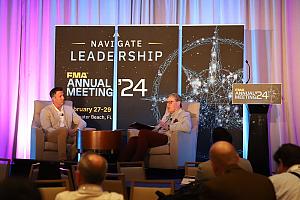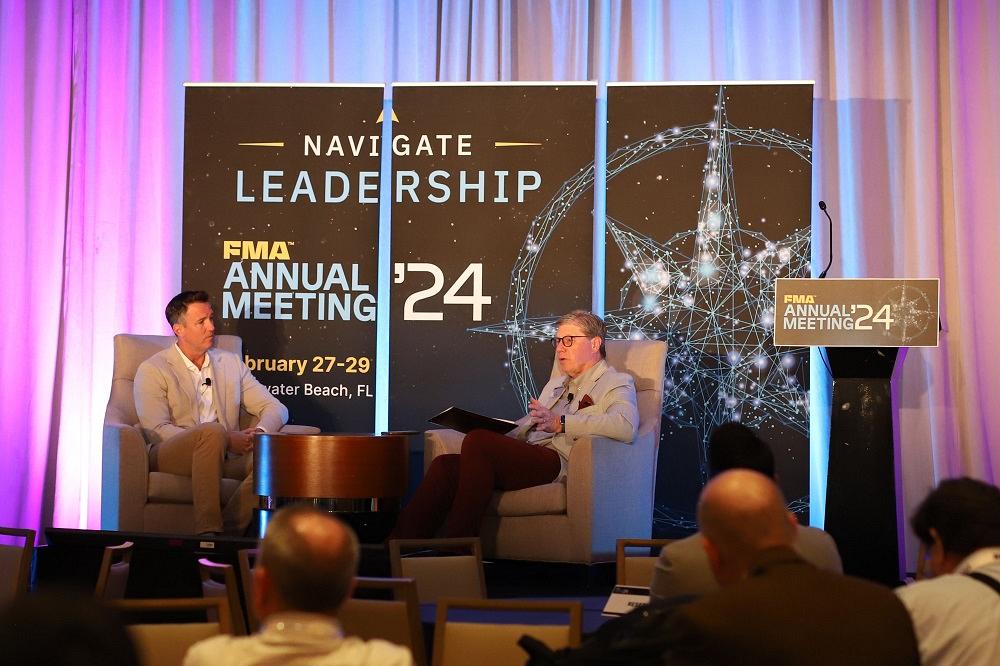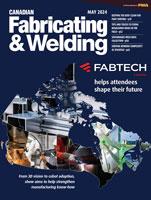Editor
- FMA
- The Fabricator
- FABTECH
- Canadian Metalworking
FMA Annual Meeting: Ingenuity still key with tech innovations
Event gave attendees an idea of what the near future might look like for North America’s manufacturing community
- By Rob Colman
- May 6, 2024
The Fabricators and Manufacturers Association Annual Meeting in Clearwater Beach, Fla., at the end of February gave attendees an idea of what the near future might look like for North America’s manufacturing community. While it adds wrinkles to the landscape, the main takeaway was consistent: team know-how isn’t out of fashion.
Day 1 keynote speaker Gene Marks, a columnist for Forbes and other outlets, delved into artificial intelligence (AI)—where industry is today and what we can expect in the future. Marks said that the AI-related economy is expected to grow from $428 billion this year to $2 trillion in 2030.
As amazing as that stat is, he also noted that the power of modern computing has enabled many AI tools, but none of those tools are “total” solutions. They can help automate a variety of tasks, but they only get you 80 or 90 per cent of the way there. People still get the job done.
There was a lot of great discussion about getting that job done in breakout sessions at the meeting, where attendees discussed the challenge of data—both the quantity and quality—and the many steps required to make a successful shift to integrating Industrial Internet of Things (IIoT) platforms. You may think your shop is efficient, but it’s amazing to see how much information is keyed in on the floor, and it can be shocking to see what the “real” uptime machines have on the floor. Investments in tech find plenty of low hanging fruit, but also uncover exceptions that need to be managed.
Getting the most out of software innovations can certainly speed production in the usual high-product-mix environment of fab shops today. Canadian Custom Metalworks is one example of a company that is proving the value of this. Co-founder Steve Abbott offers his insight in how software is helping speed product development. In concert with that, using tools like 3D printing of jigs and fixtures and, potentially, some parts simplifies production flow.
The FMA Annual Meeting and other events of its kind can really help make wider manufacturing concerns clearer, but sometimes it’s important to share locally among like-minded businesses, particularly when initiatives like net-zero emissions and the drive for the electrification of the automotive industry are affecting your operations. Manitoba’s Vehicle Technology Centre is serving this need in the province, helping to speed innovation in its unique industry cluster. Read more about the organization here.
To learn how you can get involved in FMA and events like the Annual Meeting, visit fmamfg.org.
subscribe now


Keep up to date with the latest news, events, and technology for all things metal from our pair of monthly magazines written specifically for Canadian manufacturers!
Start Your Free SubscriptionAbout the Author

Rob Colman
1154 Warden Avenue
Toronto, M1R 0A1 Canada
905-235-0471
Robert Colman has worked as a writer and editor for more than 25 years, covering the needs of a variety of trades. He has been dedicated to the metalworking industry for the past 13 years, serving as editor for Metalworking Production & Purchasing (MP&P) and, since January 2016, the editor of Canadian Fabricating & Welding. He graduated with a B.A. degree from McGill University and a Master’s degree from UBC.
- Industry Events
MME Saskatoon
- May 28, 2024
- Saskatoon, SK Canada
CME's Health & Safety Symposium for Manufacturers
- May 29, 2024
- Mississauga, ON Canada
DiPaolo Machine Tools Open House 2024
- June 4 - 5, 2024
- Mississauga, ON Canada
FABTECH Canada
- June 11 - 13, 2024
- Toronto, ON Canada
Zoller Open House & Technology Days 2024
- June 12 - 13, 2024
- Ann Arbor, MI





















